
The industrial use of land formerly occupied by the Augustinian priory of Darley Abbey goes back to the 17th and 18th centuries, when several water-powered mills for the production of corn, flint, leather and paper operated on land between Darley Street and the western bank of the River Derwent. In 1778, land on the opposite bank of the river was purchased by Thomas Evans, a successful banker and businessman. Between 1782 and 1830, members of the Evans family developed the site to house one of the largest of the great cotton mill complexes built on a 15-mile stretch of the Derwent Valley – an area now designated as a UNESCO World Heritage Site, which means it can rank alongside iconic locations such as Stonehenge and the Giza Pyramids.
The huge complex constructed by the Evans family consisted of five mills and various ancillary buildings. Three of the factories were known as the West, Middle and East Mills, whilst a fourth factory, which was by far the largest, was called the Long Mill. The benevolent Evans family also built over 100 comfortable dwellings, arranged in neat terraces on the western side of the Derwent, to accommodate their mill workers. The later addition of a church and a school made this settlement one of the most complete early examples of a purpose-built industrial village in the world.
With the death of Walter Evans II in 1903, the involvement of the family came to an end. Walter’s mill manager, John Peacock, bought the factories and members of the Peacock family continued to run them until 1943, when the mills were sold to J & P Coats of the Viyella Group. Textile production ceased completely in 1970, but the sale of the mills for other uses had already begun in the previous year, when Sam Attwood acquired the East and Middle Mills.
Esta historia es de la edición February 2020 de Derbyshire Life.
Comience su prueba gratuita de Magzter GOLD de 7 días para acceder a miles de historias premium seleccionadas y a más de 9,000 revistas y periódicos.
Ya eres suscriptor ? Conectar
Esta historia es de la edición February 2020 de Derbyshire Life.
Comience su prueba gratuita de Magzter GOLD de 7 días para acceder a miles de historias premium seleccionadas y a más de 9,000 revistas y periódicos.
Ya eres suscriptor? Conectar

Can Plants Hear?
In the latest in his series on the intelligence of plants, Martyn Baguley analyses whether they have the ability to hear
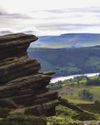
Peak National Park and Ride
Andrew Griffihs asks what the future holds for transport in the Peak National Park and talks to Julian Glover about his Landscapes Review
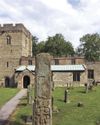
Doubly thankful
Mike Smith explores the village of Bradbourne, which has a particularly poignant tale to tell
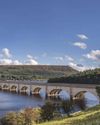
What lies beneath
Exploring the hidden depths of Ladybower Reservoir, which conceals secrets of a fascinating past

Battle for our birds
Paul Hobson analyses our complex relationship with birds of prey and how these fascinating birds are fairing in Derbyshire
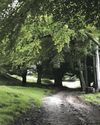
Explore the Peak Forest
A walk through autumn fields and forests with far reaching views enriched by snippets of mystery, romance and the area’s industrial past
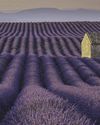
Pictures to transport you
Chesterfield photographer David Keep continues his photographic journey, this time recalling his favourite landscape images from around the world

The magic of Christmas
Ideas for days out, gifts and where to find local produce in Derbyshire this festive season

PENNY for the Guy
We take a look at Derbyshire’s bonfire tradtions through history

From hardship came happiness
Pat Ashworth speaks with Chesterfield based retired Colonel John Doody about his inspiring life, from a diffiult childhood to overcoming diversity and finding happiness